Controlling risks to protect people's health
National Assembly Deputy Tran Thi Nhi Ha said that, regarding the scope of regulation (Article 1), according to the World Health Organization, human health is affected by four basic groups of factors including society, environment, economy and behavior. Therefore, disease prevention is not simply based on clinical and epidemiological issues, but needs to address root causes such as: Living conditions, working environment, air quality, clean water, food, access to health services...
"The expansion of the scope of regulation in Article 1 is extremely necessary to create a clear legal basis for the development of programs to improve public health, while at the same time specifically defining the responsibilities of each ministry, branch and government at all levels in managing and controlling risk factors to protect people's health not only through medicine and hospitals, but also through a healthy living environment, fair socio-economic policies and positive living behaviors," emphasized National Assembly Deputy Tran Thi Nhi Ha.

On that basis, the delegates proposed to amend the content of Article 1 as follows: “This Law regulates the prevention and control of infectious diseases; prevention and control of non-communicable diseases; mental health disorders; prevention and control of risk factors from the environment, lifestyle, behavior and nutrition; improving public health; applying science, technology and digital transformation in public health management; adapting to climate change and ensuring health equity”.
Regarding the State's policy on disease prevention (Article 3), National Assembly Deputy Tran Thi Nhi Ha said that the current legal system has regulations on preventing and combating the harmful effects of tobacco, alcohol, and beer - products that pose a direct risk to consumers' health. However, there is still a lack of a comprehensive control mechanism for product groups that increase non-communicable diseases, such as: products containing a lot of sugar, a lot of salt, fast food, ultra-processed products, etc.
To prevent disease effectively, delegates affirmed that it is not enough to stop at some tax solutions as in the past, but more importantly, it is necessary to establish a comprehensive, synchronous and sustainable policy; aiming to change the structure of the food industry and transform social awareness about healthy consumption.
"We cannot continue to "put out fires" with treatment when preventable non-communicable disease agents are not yet well controlled. Therefore, the Law on Disease Prevention needs to be stronger, more drastic, and one step ahead to protect people's health in this aspect," said National Assembly Deputy Tran Thi Nhi Ha.
Need to legalize school nutrition
In addition, the delegate also pointed out the need to establish a sustainable financial mechanism for disease prevention activities, meeting the requirements of fundamental innovation in the spirit of Resolution 72 of the Politburo . At the same time, it is recommended to add 2 more contents in Article 3; in which, add clause 5a: "The State has a policy to encourage the production and consumption of healthy products, while controlling and restricting products that are not beneficial to health according to the provisions of law"; at the same time add clause 10a "The State has a sustainable financial policy for disease prevention activities, including the state budget, health insurance fund, tax policy and socialized sources".
.jpg)
Referring to Article 36 on nutrition for children, the delegate stated: Resolution 72 of the Politburo affirms that nutrition in disease prevention must be focused on throughout the life cycle and the period from 5 to 18 years old is the "golden age" for disease prevention through education and forming healthy living habits. However, the draft Law on Disease Prevention does not have specific regulations on school nutrition; while this is the most important link to protect the health of the young generation right from school. Citing many countries such as Japan, Korea, England, and France that have strict laws on this issue, the delegate said: "It is time for Vietnam to legalize school nutrition so that schools can truly become the first fortress in disease prevention, where a healthy, intelligent and happy generation is formed", emphasized National Assembly Deputy Tran Thi Nhi Ha.
Delegates recommended that the Ministry of Health preside over and coordinate with the Ministry of Education and Training to issue National Standards on nutritional standards for school meals. Educational institutions are responsible for organizing meals that ensure reasonable and scientific nutrition, limiting the use of unhealthy foods that can potentially affect students' health" and "Prohibiting the sale, advertising and promotion of unhealthy products in and around school premises".
Focus on digital transformation of disease prevention activities
Regarding the application of digital transformation for disease prevention activities (Article 39), National Assembly Deputy Tran Thi Nhi Ha emphasized that healthcare is identified as one of the eight key areas of Project 06 on national digital transformation, however, epidemic surveillance work is still mainly done manually, data is scattered, and has not been updated in real time; electronic health records have been deployed but are not synchronized... Meanwhile, the European Union has a legal framework for sharing public health data, and South Korea has applied AI in analyzing epidemiological data to predict the risk of disease outbreaks early. Therefore, it is necessary to supplement breakthrough regulations on data and digital technology in disease prevention, so that Vietnam can build a smart surveillance system along with proactive and modern data analysis of disease models.
According to the delegate, it is necessary to amend and supplement Clause 2, Article 39 in the direction that "disease prevention activities need to be deployed on a digital platform, ensuring connection, interconnection and effective exploitation of medical data in disease management, monitoring and forecasting. The content of digital transformation must include a national health database system, electronic health records, early warning systems applying artificial intelligence, big data, Internet of Things, and personal health management platforms. The Ministry of Health shall preside over and coordinate with ministries and branches to ensure technical infrastructure, information security, issue standards, train human resources and guide data sharing. The State shall ensure financial resources and encourage socialization to develop digital health platforms, while ensuring privacy and personal data security".
Regarding health equity and support for vulnerable groups, National Assembly Deputy Tran Thi Nhi Ha stated that the 2013 Constitution affirms: “Everyone has the right to health protection and care, and equality in the use of health services”. At the same time, Resolution 72 of the Politburo also clearly stated the requirement to “ensure health equity, increase access to disease prevention and treatment services for all people, especially vulnerable groups”. However, this content in the draft is still very vague, not reflecting the true spirit of the Constitution and the Party's major orientation.
Therefore, the delegates proposed to add an article regulating priority policies and medical support for disadvantaged areas and vulnerable groups, with the following contents: The State ensures that all people have the right to access preventive services, health consultation, vaccination and disease screening; prioritize investment in disease prevention resources for remote, border, island areas and vulnerable groups; support all or part of the costs of screening and other disease prevention services for vulnerable and high-risk groups.
Source: https://daibieunhandan.vn/ro-trach-nhiem-cua-tung-cap-tung-nganh-trong-cong-tac-phong-benh-10395124.html





![[Photo] Prime Minister Pham Minh Chinh attends the annual Vietnam Business Forum](https://vphoto.vietnam.vn/thumb/1200x675/vietnam/resource/IMAGE/2025/11/10/1762780307172_dsc-1710-jpg.webp)
![[Photo] Prime Minister Pham Minh Chinh attends the Patriotic Emulation Congress of the Ministry of Foreign Affairs for the 2025-2030 period](https://vphoto.vietnam.vn/thumb/1200x675/vietnam/resource/IMAGE/2025/11/10/1762762603245_dsc-1428-jpg.webp)















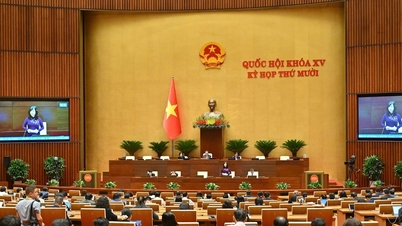

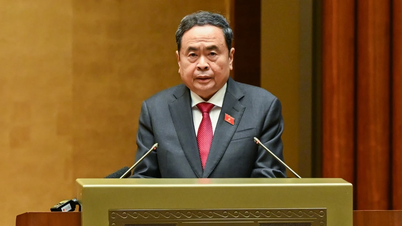








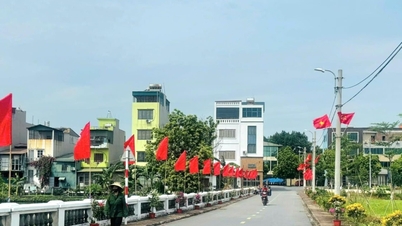
















































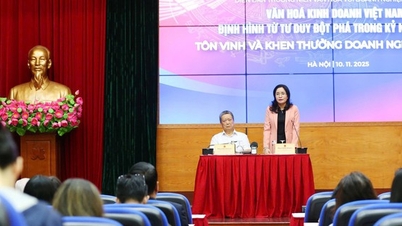





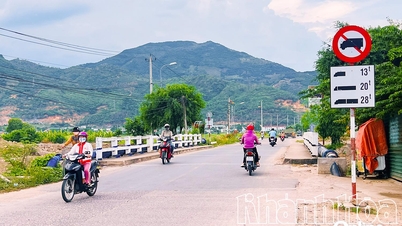




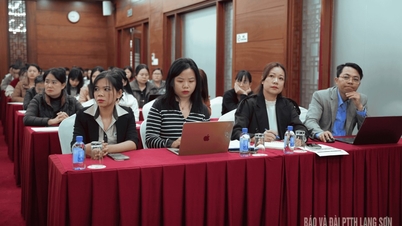


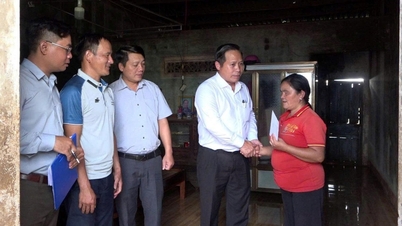


![Dong Nai OCOP transition: [Article 3] Linking tourism with OCOP product consumption](https://vphoto.vietnam.vn/thumb/402x226/vietnam/resource/IMAGE/2025/11/10/1762739199309_1324-2740-7_n-162543_981.jpeg)











Comment (0)